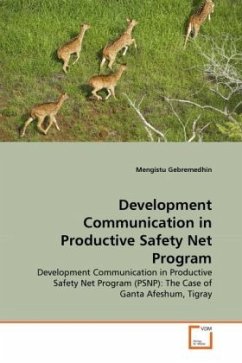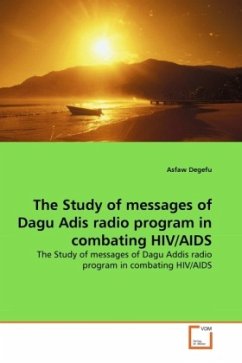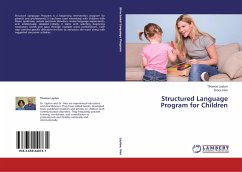This paper studies the Productive Safety Net Program (PSNP) one of the Food Security Strategies in Ethiopia that provides food and cash transfer to chronically food insecure areas of the country through direct support and public works in terms of the dependent attitude it develops in participants of two communities of Ganta Afeshum district at Eastern zone of Tigray. It also examines the communication model employed to avert this effect. Qualitative observation, focus group and individual in-depth interviews were employed to see how participatory communication model is functioning in the Public Works. The overall result of the study shows that limited participatory level of the society in the Public Works programs as causing the people not to be committed to the work and not to be able to withdraw from dependent attitude.
Bitte wählen Sie Ihr Anliegen aus.
Rechnungen
Retourenschein anfordern
Bestellstatus
Storno








